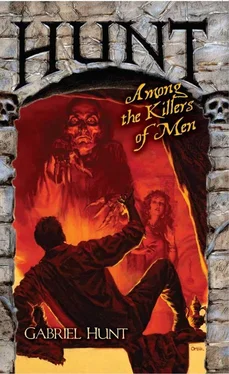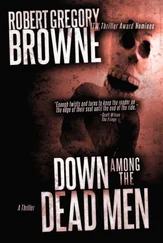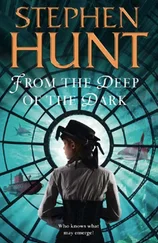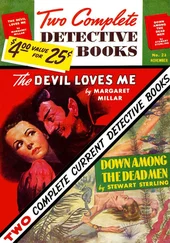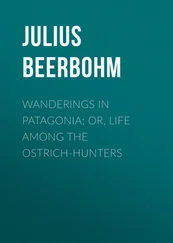“Ten days to reopen at a cost of $2.6 million New Pacific dollars. That’s the repair versus the lost income.”
“They’re robbing us because they think we’re desperate,” Cheung said. He picked up a hardwood abacus and started clicking the beads on the device’s lower deck, bottom-to-top, right-to-left, carrying totals to the upper deck, where each bead represented five times more value. It was the simplest base-ten counting system in the world.
“Get everything right. Tell them they have twenty days to reopen. Give them one point one. More time, but less loss.”
“What about General Zhang’s military loan?” said Fleetwood. “What about the interest the police owe us?”
Cheung waved this away because Longwei Sze Xie had entered.
“Ivory,” Cheung said. “My Immortal. Tell me true things.”
After a formal bow, Ivory exhibited several printouts salvaged from the surveillance cameras at the casino ship.
“The Nameless One,” he said, unnecessarily. “Same as at the Oriental Pearl Tower. And here, again. And again.”
“Is she a ghost?”
“No,” said Ivory.
“Tell me,” said Cheung, his voice succoring. “Is she a genuine threat, or is she just crazy and lucky?” The implication that Ivory’s job hung in the balance was clear.
“She will be no threat. I will see to it.”
Cheung rose and—very uncharacteristically—laid an avuncular hand on Ivory’s shoulder. He rarely touched any of his employees.
“Longwei Sze Xie,” he said, using respect language, “I shall need you close by at all times. You help enable my…mad little schemes, and I shall always be grateful. There is one small errand to which I would like you to attend.”
“Name it and it is done,” said Ivory.
He whispered into Ivory’s ear.
“Sir, Nairobi’s finally calling back on line two,” Fleetwood announced.
“I’ll take it,” said Cheung, who picked up his phone and began speaking in perfect Kenyan dialect.
Ivory had already vanished from the room.
Qingzhao was punching holes in a sheet of tin with a mallet and chisel. Each time she smacked the metal the perforation made a pank! sound that echoed inside the shrine room.
“Was she a soldier, this woman?” she asked.
“Yes,” said Gabriel. “A U.S. Air Force pilot.”
“Then she knew about soldiers in battle. They die.”
“Her sister was no soldier. She was a database engineer at the American office of a Chinese corporation.”
“Cheung’s?”
Gabriel nodded.
“Cheung is a warrior. Anyone who works for him has to be prepared for the worst.”
“Bet they don’t tell employees that before they take the job.”
Qingzhao shrugged this away.
“What’s your connection to Cheung?” Gabriel asked. “Were you an employee, too? Before you were…what did you say, murdered?”
She flared with anger: “You have no right to show disdain. Have you fought and killed another man? Ever been wounded in battle?”
In his nearly twoscore years on the planet Gabriel had been shot six times and stabbed or cut with edged weapons over a hundred.
“Lady, trust me, I’ve been wounded plenty,” he said.
“Lady,” Qingzhao repeated as though testing a new word and finding it inadequate.
Qingzhao inverted the holed metal so the sharplipped edges of the punctures were facing her. Then she punched the metal with her bare fist.
Gabriel winced.
Qingzhao pounded the metal like a boxer, then turned to a basket of lemons at the base of the shrine. She squeezed one freehanded until it burst, and worked the juice into both bleeding hands. Gabriel knew the pain must be incredible, but Qingzhao’s expression did not change.
“Toughens the skin,” she said, as though that was answer enough. It ended their conversation.
Some lady , Gabriel thought.
At the archway to the pagoda, there had once been a gate guarded by immense stone lions of marble. Now there remained only weathered pedestals and severed stone paws, one holding a child, the other, a globe of the world.
Gabriel stood between them watching the setting sun, trying to frame an argument. Mitch Quantrill was lost; swallowed by the Huangpu with a bullet in her. The odds that she had survived were low. Lucy would be distraught when she found out. And furious with him. Still—was it his responsibility to pick up her doomed mission? Would that make things right?
No.
Then there was this woman, with the motorcycle and the tough skin and the story about having been murdered. All right, chalk some of it up to the language barrier, but still, she seemed mildly crazy. And whatever mission she was on seemed fraught with who knew what sort of damage in her past. If she wanted to go after Cheung, was that his problem?
No.
It would be the easiest thing in the world to make his way back to the city. By Gabriel’s reckoning they were perhaps fifty miles into the mountains along the Yangtze River. He could jet back to the States. Michael could reschedule the lecture tour, make apologies for Gabriel’s mysterious absence. And all this would become a bad bit of history. It made sense.
So why did he feel no desire to do it?
Gabriel tried to kid himself that he was still recovering from the bullet skid to the temple, but he knew better. Maybe he was attracted to Qingzhao; was that it?
He was still trying to work out the answer to that one when she appeared silently beside him.
“Don’t let them see you.”
Gabriel’s senses instantly hit high alert. “Who?”
“The soldiers.”
His body tensed, automatically crouching down and scanning the grounds for cover. “ What soldiers?” he said.
“My army,” said Qingzhao. “The Killers of Men.”
The pair of Tosa dogs were schooled aggressors, each nearly 200 pounds. Also known as Japanese Fighting Mastiffs or “Sumo Dogs,” their jaws could render nearly 600 pounds of crush pressure, and this brindle pair stood 25 inches at the shoulder. Highly prized as fighters, this type of dog had been banned in the UK, Ireland, New Zealand and Australia. As a breed they were alert, agile, and quick to respond with unbelievable reserves of stamina, which meant that gladiatorial training amplified all their most dangerous traits.
Dinanath had overseen the training of this pair. Neither dog had a name. Right now, Ivory was holding the remote fob keyed to their electronic discipline collars.
In his other hand he held the gleaming meat cleaver he had just confiscated from Lao, the fisherman.
Aboard his sampan, Lao was busy pleading for his life in Mandarin.
“It appears,” Ivory said, “that Qingzhao Wai Chiu had not one ally, but two.”
“This is getting out of hand,” said Dinanath.
Ivory sighed and nodded. He was tired of trying to maintain a standard of honor that was increasingly irrelevant.
He keyed the fob and the Tosa dogs tore into the terrified Lao. His screams disappeared down chomping gullets, and Ivory rendered the man the small mercy of shooting him in the head before it was all over.
Gabriel gazed with breathless disbelief at one of the full-sized terra-cotta warriors inside the shrine room Qingzhao had led him to.
There were four in all, half-buried in deep dirt trenches, broken and weathered like long-vandalized tombstones. Two vacant slots suggested two figures had already been removed.
But that was not the most awe-inspiring thing in the shrine room.
Suffocated by vines and tree roots at the far end of the chamber, clotted with decades of dried mud and impacted dust, was a large bronze statue of a Chinese grotesque, pointing one bony sculpted finger toward the center of the room. Underlit by torchlight it was positively ghoulish, a nightmare vision, an evil god. The scaling and tarnish on the bronze made the looming grotesque appear to be leprous.
Читать дальше
